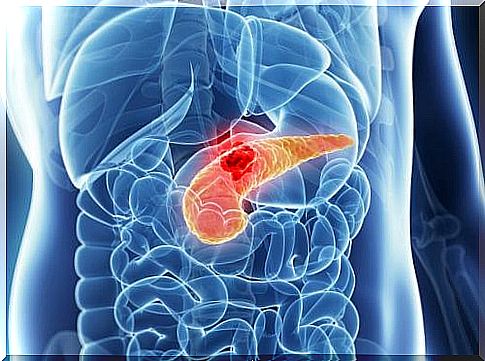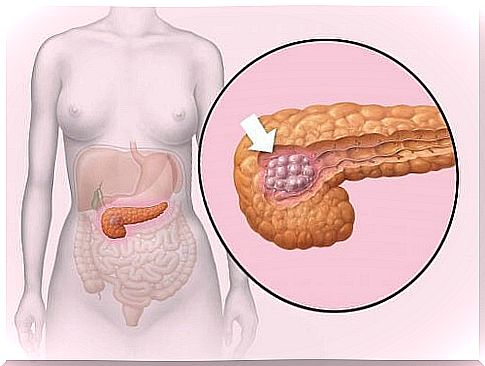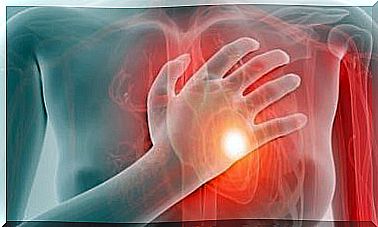The First Hormonal Symptoms Of Pancreatic Cancer

In general, cancer is a disease that can affect most cells in the body. Pancreatic cancer occurs when pancreatic cells begin to divide uncontrollably. It can affect men as well as women and at any age. In this article, we will tell you what the symptoms of pancreatic cancer are.
The pancreas is an elongated organ located behind the stomach that has many important functions in the body. It consists of two types of cells:
- Endocrine cells: These are typically located in the pancreatic islets. They produce hormones that are released directly into the bloodstream. Normally, they produce insulin and glucagon, which regulate the amount of glucose in the blood.
- Exocrine cells: These in turn produce enzymes that travel to the duodenum through small ducts. They form the pancreatic duct, which attaches to the bile duct from the liver in the small intestine. The enzymes they make help with the digestion of some nutrients, such as lipids.
What are the different types of pancreatic cancer?

In general, there are two types of pancreatic cancer, depending on the type of cells it affects:
- Exocrine pancreatic cancer: This is the most common pancreatic cancer. In most cases, it is produced in cells that produce digestive enzymes.
- Neuroendocrine tumors of the pancreas (malignancies): These affect the cells of the islets of Langerhans, which produce hormones and release them directly into the bloodstream. This includes different subtypes depending on the cell types affected by the cancer (see most common symptoms).
What are the most common symptoms of pancreatic cancer?

In some people, pancreatic cancer does not cause any symptoms. In addition, symptoms may vary depending on the type of pancreatic cancer. Here are the most common symptoms of pancreatic cancer classified by type of cancer:
Exocrine pancreatic cancer
- Fatigue, exhaustion or general weakness.
- Nausea and vomiting.
- Anorexia, which often leads to weight loss.
- Enlargement of the gallbladder and / or liver.
- Abdominal discomfort that can extend to nearby areas (such as the back).
- Yellowing of the skin. This is because the cancerous tumor clogs the bile duct, causing bilirubin to build up. Bilirubin is a pigment produced by the liver that normally enters the duodenum through the bile duct. Other symptoms include darker urine and changes in the appearance of the stool (changes in color and composition).
Here are some hormonal symptoms:
- Changes in the composition of the patient’s adipose tissue. This is because pancreatic enzymes are secreted in the wrong way.
- Diabetes. In this case, the exocrine cells destroy the insulin-synthesizing cells, causing the blood sugar to rise and the symptoms characteristic of diabetes to appear.
- Minor changes in blood sugar levels.
Neuroendocrine tumors of the pancreas (malignant): the symptoms depend on the cells that caused the cancer.
- Gastrinoma: The disease occurs in gastrin-producing cells. In general, gastrin increases gastric acid secretion. This condition is known as Zollinger-Ellison syndrome.
- Insulinoma: Affects insulin-producing cells that divide uncontrollably. This causes hypoglycaemia, which is low blood sugar.
- Glucagonoma: A rare tumor that develops in glucagon-producing cells. It causes hyperglycemia, or high blood sugar.
- Somatostatinoma: Somatostatin normally helps regulate other hormones. This tumor may alter the amount of somatostatin.
- Pancreas producing pancreatic polypeptide: This causes overproduction of pancreatic polypeptide. The pancreatic polypeptide regulates pancreatic function under normal conditions.
- Vipoma: Alteres cells that synthesize vasoactive intestinal peptide (VIP). The most notable symptom is prolonged diarrhea.









